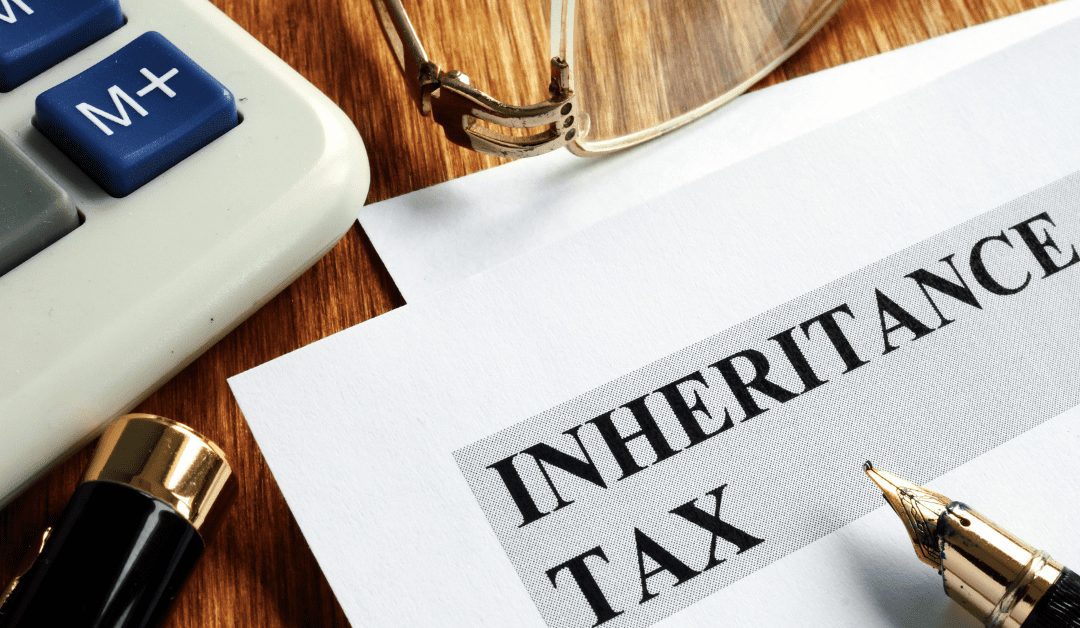There are a variety of different products available which use trusts in order to mitigate an IHT liability. Each of these products will have an underlying trust which will be either an Absolute (Bare) Trust or a Discretionary Trust. We will look at the high level features of these in todays article and will provide a further article detailing some of the different investment based trust products available that use discretionary and absolute trusts.
Though the establishment of a Trust can be a useful tool it often comes with additional responsibility and record keeping for those involved as the trustees.
These responsibilities are explained below.
When you need to tell HMRC about a trust via the Trust Registration Service
For trusts created on or before 6th October 2020 these should have been registered by September 2022. For trusts created after this date, you should register these within 90 days of the trusts being set up. There are some exceptions to this such as:
- Pension schemes;
- Charitable trusts;
- Trusts set up in a person’s will if the trust is brought to an end within two years of death;
- Certain trusts that pay out on death or critical illness;
- Existing trusts with a value of less than £100 created before to 6 October 2020
- Trusts set up to hold jointly-owned property, where the legal and beneficial owners are the same; and
- Disabled persons trusts and certain other trusts for vulnerable beneficiaries, such as those set up for children with a deceased parent
Whose responsibility is it to notify HMRC?
The trustees are responsible for notifying HMRC once a trust is set up. Only one of the trustees needs to register the trust and, if they prefer they can choose to pay an agent, such as a tax adviser, to register this for them.
Role of the Trustees
Trustees are the legal owners of the assets held in a trust. Their role is to:
- Deal with trust assets in line with the trust deed
- Manage the trust on a day-to-day basis and pay any tax due on the income or chargeable gains of the trust
- Decide how to invest the trust’s assets and/or how the assets in the trust are to be used – although this must always be in line with the trust deed
The trust can continue even though the trustees might change. However, there must be at least one trustee. Often there will be a minimum of two trustees.
Absolute (Bare) Trust
An Absolute (Bare) trust is a trust where the beneficiary has an immediate and absolute right to both the capital and income held in the trust.
Someone who sets up an Absolute (Bare) Trust can be certain that the assets (such as money, land or buildings) they set aside will go directly to the beneficiaries they intend. These assets are known as ‘trust property’. Once the trust has been set up, the beneficiaries can’t be changed.
The assets are held in the name of a trustee – the person managing and making decisions about the trust. However, the trustee has no discretion over what income or capital to pass on to the beneficiary or beneficiaries.
Absolute (Bare) Trusts are commonly used to transfer assets to minors. Trustees hold the assets on trust until the beneficiary is 18 in England and Wales, or 16 in Scotland. At this point, beneficiaries can demand that the trustees transfer the trust fund to them.
Taxation of a Bare Trust
- Income tax: any income arising with the bare trust is assessable on the beneficiary as they are absolutely entitled to that income. a sits assessable on the beneficiary they can offset personal income tax allowances against the income. The income should therefore be declared on the beneficiaries tax returns
- Capital gains tax (CGT): in the same way as income, the beneficiary is liable to any capital gains tax arising within the Bare Trust. As its taxable on them personally any capital gains allowances can be offset. This should also be reported on the beneficiary’s tax return.
- Inheritance tax (IHT): Gift into trust is a potentially exempt transfer (PET) see the previous Article here. Assets are treated as inside the beneficiary’s estate for IHT purposes.
Advantages of an Absolute (Bare) Trust:
- The initial gift is a potentially exempt transfer.
- There is minimal trust administration and no ten year or exit charge payable by the trust
Disadvantages of an Absolute (Bare) Trust:
- The beneficiaries must be named at the outset of setting up the Trust and cannot be altered; this makes this trust extremely inflexible.
- There is a lack of control as the beneficiaries are entitled to the trust fund and can demand the capital at any time once they reach 18. This may be something you are uncomfortable with, especially in the case of grandchildren.
- The Trust fund is in the beneficiaries’ estate for IHT purposes which could be detrimental to their estates.
- There is no protection against claims from third parties, for example on the divorce or bankruptcy of a beneficiary.
Discretionary Trust
In a Discretionary Trust, the trustees are the legal owners of any assets – such as money, land or buildings – held in the trust. These assets are known as ‘trust property’. The trustees are responsible for running the trust for the benefit of the beneficiaries.
The trustees have ‘discretion’ about how to use the trust’s income. They may also have discretion about how to distribute the trust’s capital. The trustees may also be able to ‘accumulate’ income – add it to capital.
Trustees may be able to decide:
- How much income and or capital is paid out, if any
- Which beneficiary to make payments to
- How often the payments are made
- What, if any, conditions to impose on the recipients
Discretionary Trusts are sometimes set up to put capital aside for:
- A future need that may not be known yet, for example a grandchild that may require more financial assistance than other beneficiaries at some point in their life
- Beneficiaries who are perhaps not capable or responsible enough to deal with money by themselves
Under the terms of the deed that creates the trust, there may be situations when the trustees have to use income for the benefit of particular beneficiaries. However, they may still retain discretion about how and when to pay. The extent of the trustees’ discretion depends on the terms of the trust deed.
A periodic tax charge of 6% on all assets in trust above the inheritance tax threshold would be payable on the every 10th anniversary of the discretionary trust.
A Discretionary Trust offers far more flexibility and enables you to make amendments to the Trust after it has been set up.
Taxation of a Discretionary Trust
- Income tax: The trustees are liable to any income tax arising. Trustees are responsible for declaring and paying Income Tax on income received by the trust. The trust has basic rate band of £1,000 within which tax is payable at 8.75% for dividends or 20% for other income. Above this band income is taxable at 39.35% or 45% depending on source (tax deducted at source can be offset).
- Capital gains tax (CGT): Trustees only have to pay capital gains tax if the total taxable capital gain is the trusts tax free allowance. The tax free allowance for the 2023/24 tax year is £3,000. This is increased to £6,000 if the beneficiary is classed as vulnerable.
- Inheritance tax (IHT): Gift into a discretionary trust is a lifetime transfer. If all of the lifetime transfers are below the inheritance tax allowance, currently £325,000, then there is no immediate tax charge. If the gift exceeds this, tax is payable at half of the current inheritance tax rate (20% ). If the settlor passes away within 7 years the remaining tax becomes due.
- When setting up a discretionary trust, the trust itself will have an inheritance tax allowance equivalent to that of an individual. Every 10 years, the trust will be assessed to see if its value exceeds the inheritance tax allowance. If it does, then any value in excess of this is taxed at 6%. If capital is distributed in the first 10 years If lifetime inheritance tax was payable at outset, exit charges will apply in the first ten years. If there was no lifetime inheritance tax payable at outset, there will be no inheritance tax exit charges on any distributions of capital to the beneficiaries in the first ten years
- If capital is distributed after the first 10 years inheritance tax exit charges are always based on the effective rate of tax used for the previous ten-year anniversary charge. If this was zero, there will be no inheritance tax exit charges on any distributions of capital to the beneficiaries in the following ten years. if there was a 10 year tax charge the rate of tax on the distribution is a proportion of the rate charged at the previous 10 year anniversary. The proportion depends upon the number of quarters since the last 10 year anniversary. If, in the interim, the inheritance tax allowance has increased, we need to recalculate the rate charged at the 10 year anniversary, using the allowance effective at the date of the exit..
Advantages of a Discretionary Trust:
- The Trust fund does not fall into any individuals estate
- There is a greater protection from third parties as the beneficiaries only benefit at the discretion of the Trustees.
- You will maintain control of the capital as the trustees have complete discretion over who benefits and when they receive the benefits.
- This trust is far more flexible as the beneficiaries can be changed according to your circumstances and future generations catered for.
- Any growth in the value of the Investment will fall outside of your estate for IHT purposes.
Disadvantages of a Discretionary Trust:
- The initial gift is a chargeable lifetime transfer and you would therefore need a 7 year term assurance to run alongside this gift.
- The settled property regime applies with all reporting requirements and a ten year and exit charge.
- If you gift more than your available nil rate band entry charges may apply.

Free Financial Review
If you wish to discuss your Estate Planning please contact Ashley Smith one of our Chartered Financial Planners at Howard Wright, you can call him on 0345 688 4939 or you can fill in our enquiry form below, it only takes 20 seconds to complete. We look forward to hearing from you and seeing how Ashley can help.
Disclaimer
This article contains information from sources believed to be reliable but no guarantee, warranty, or representation, express or implied, is given as to its accuracy or completeness. Howard Wright Ltd does not undertake any obligation to update or revise any future statements. Past performance is not a reliable indicator of future results. Investments can go down as well as up and actual results could differ materially from those anticipated. This article is for information purposes only and has no regard to the specific investment objectives, financial situation or particular needs of any person as such, the information contained in this article is not intended to constitute, and should not be construed as, investment or financial advice. Appropriate personalised advice should be taken before entering into any transactions. No responsibility can be accepted for any loss arising from action taken or refrained from based on this publication. Howard Wright Ltd is Authorised and regulated by the Financial Conduct Authority.
